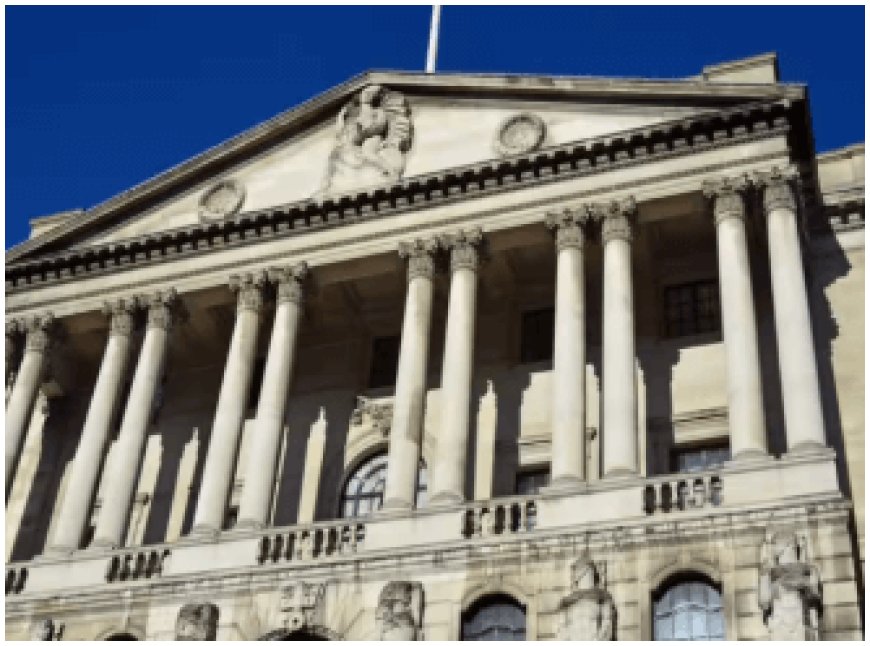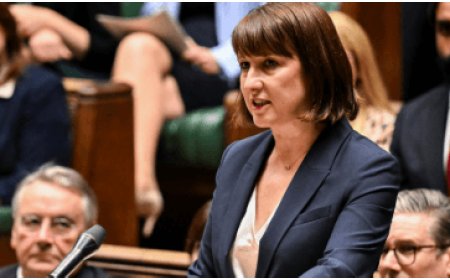Bank of England Slashes Interest Rates to 4.25% to Boost Growth Amid Declining Inflation
Bank of England Slashes Interest Rates to 4.25% to Boost Growth Amid Declining Inflation

The Bank of England has announced a significant reduction in interest rates, cutting them to 4.25% in an effort to stimulate economic growth as inflation continues to show signs of decline.
This decision marks a shift in the central bank's monetary policy approach, with the aim of supporting businesses and households in navigating the challenges of a slowing economy.
The reduction in interest rates comes at a time when inflation, which had previously been at elevated levels, is gradually easing. This decline in inflation provides the Bank of England with an opportunity to reduce borrowing costs, thereby boosting spending and investment across the economy. The central bank’s move is expected to have broad implications for various sectors, particularly the housing market, personal finance, and business investments.
For homeowners and potential buyers, the rate cut could lead to a decrease in mortgage rates, making homeownership more affordable. Lower mortgage rates typically result in reduced monthly repayments for borrowers, especially those with variable-rate mortgages, which are directly linked to central bank interest rates. This could ease the financial burden on many households, encouraging consumer spending and fostering confidence in the property market.
In addition to its impact on housing, the rate cut is also expected to lower borrowing costs for businesses. With cheaper loans, companies may feel more confident about expanding their operations, investing in new projects, or hiring additional staff. This could provide a much-needed boost to economic activity, particularly in sectors that have been struggling to recover from previous disruptions.
The decision to cut rates is also indicative of the Bank of England's broader strategy to balance inflation control with economic growth. While inflation remains an ongoing concern, the central bank is seeking to ensure that the economy does not fall into stagnation or recession. By reducing interest rates, the Bank of England is attempting to encourage consumer and business spending, both of which are critical drivers of economic growth.
The move to 4.25% marks a more accommodative stance from the central bank, signaling that it is prepared to support economic recovery if inflation continues to subside. This shift in monetary policy is likely to have ripple effects throughout the financial system, with expectations of further rate cuts if economic conditions improve. However, the Bank of England will need to carefully monitor inflationary trends and economic data to ensure that the rate cut does not trigger new inflationary pressures.
While the decision is largely seen as positive for borrowers and businesses, it also carries some risks. Lower interest rates can lead to increased borrowing, which could eventually drive up debt levels, particularly if consumers and businesses become too reliant on cheap credit. Additionally, savers may find it harder to earn returns on savings accounts and fixed-income investments as interest rates decline.
Overall, the Bank of England’s decision to reduce interest rates to 4.25% is aimed at providing stimulus to the UK economy during a period of declining inflation. The move is expected to have a positive impact on mortgage rates, borrowing costs, and overall economic activity, while also signaling the central bank’s willingness to take steps to support growth. However, the long-term effectiveness of this policy shift will depend on how inflation trends evolve and how the broader global economy reacts to ongoing challenges.
What's Your Reaction?
 Like
0
Like
0
 Dislike
0
Dislike
0
 Love
0
Love
0
 Funny
0
Funny
0
 Angry
0
Angry
0
 Sad
0
Sad
0
 Wow
0
Wow
0














































